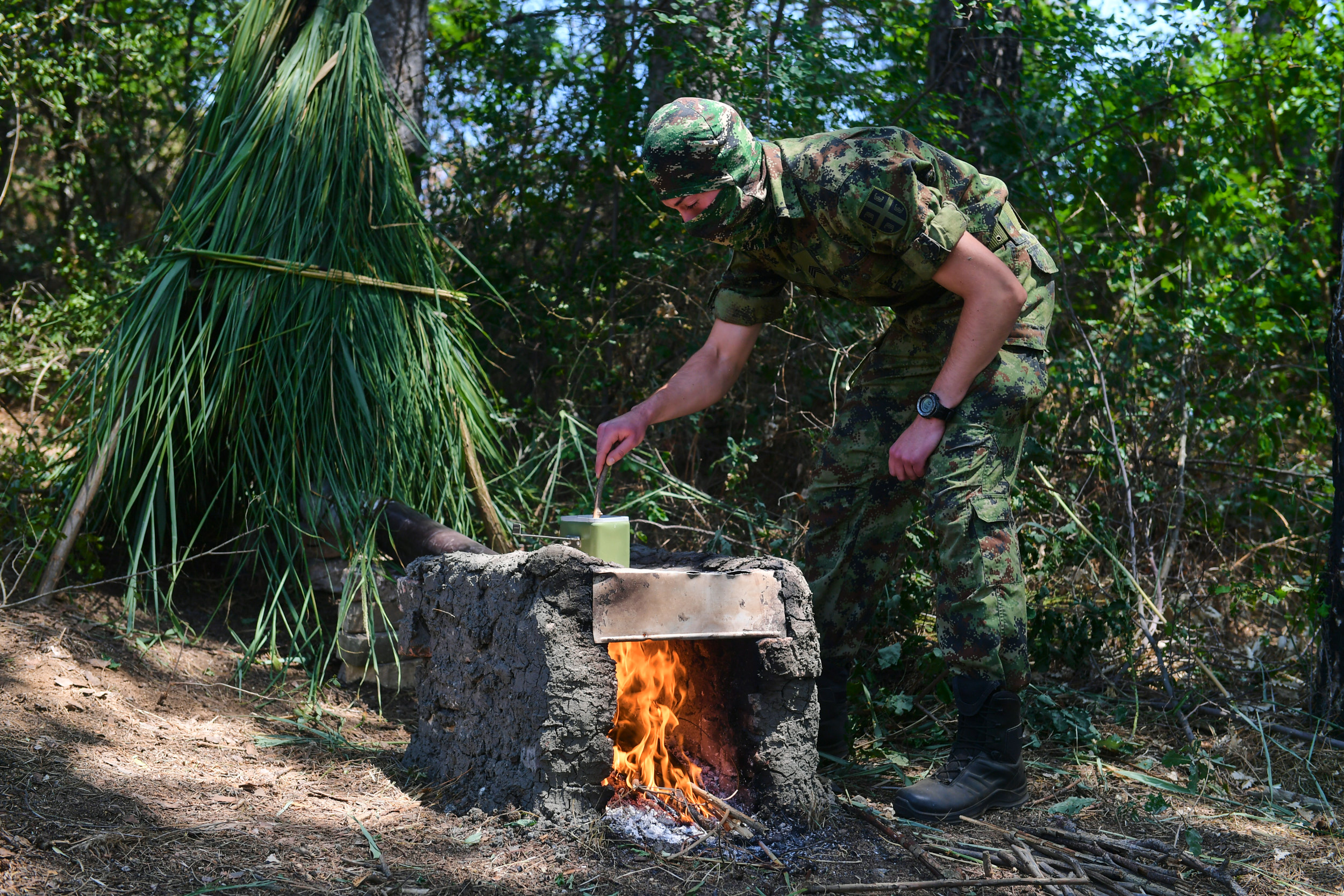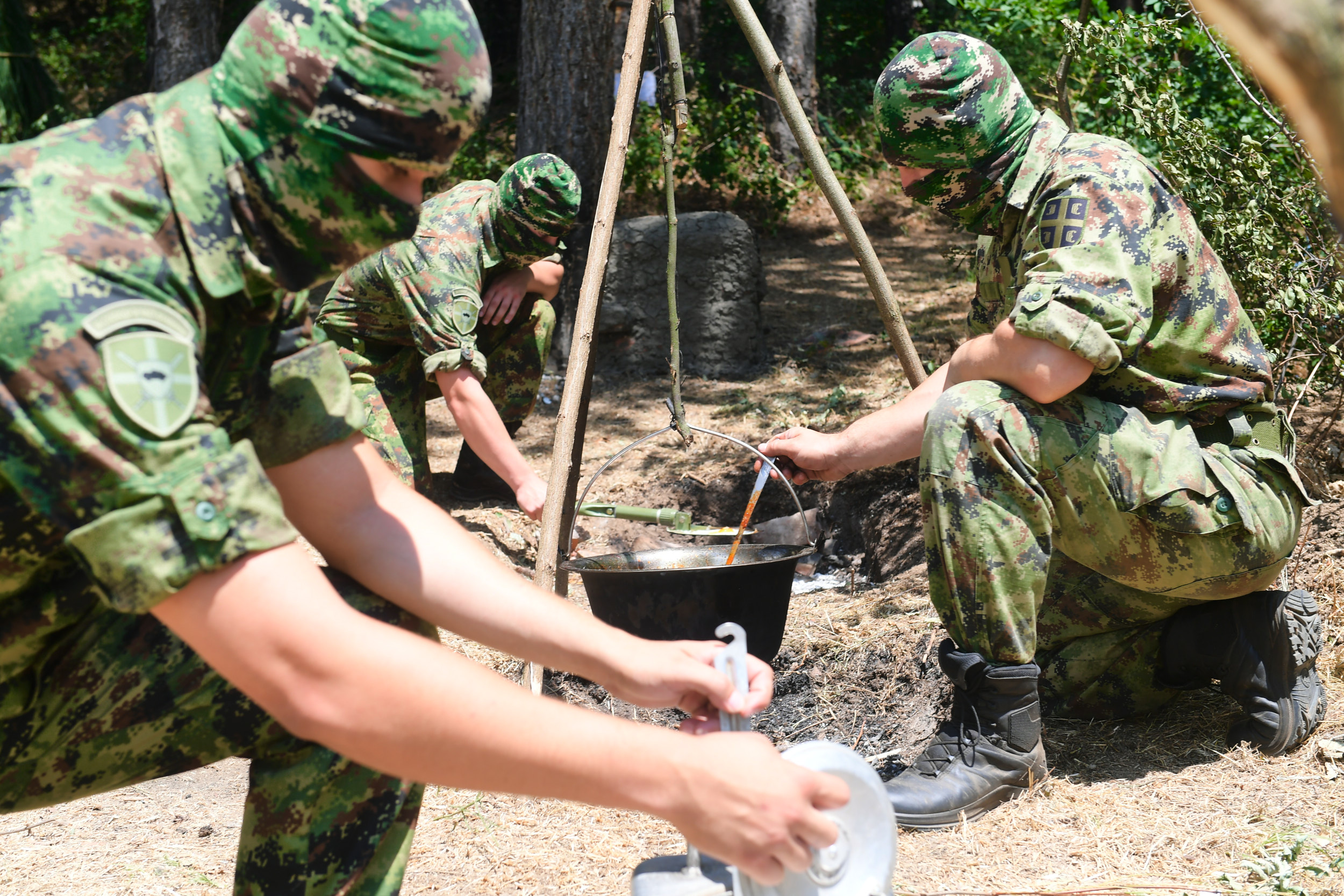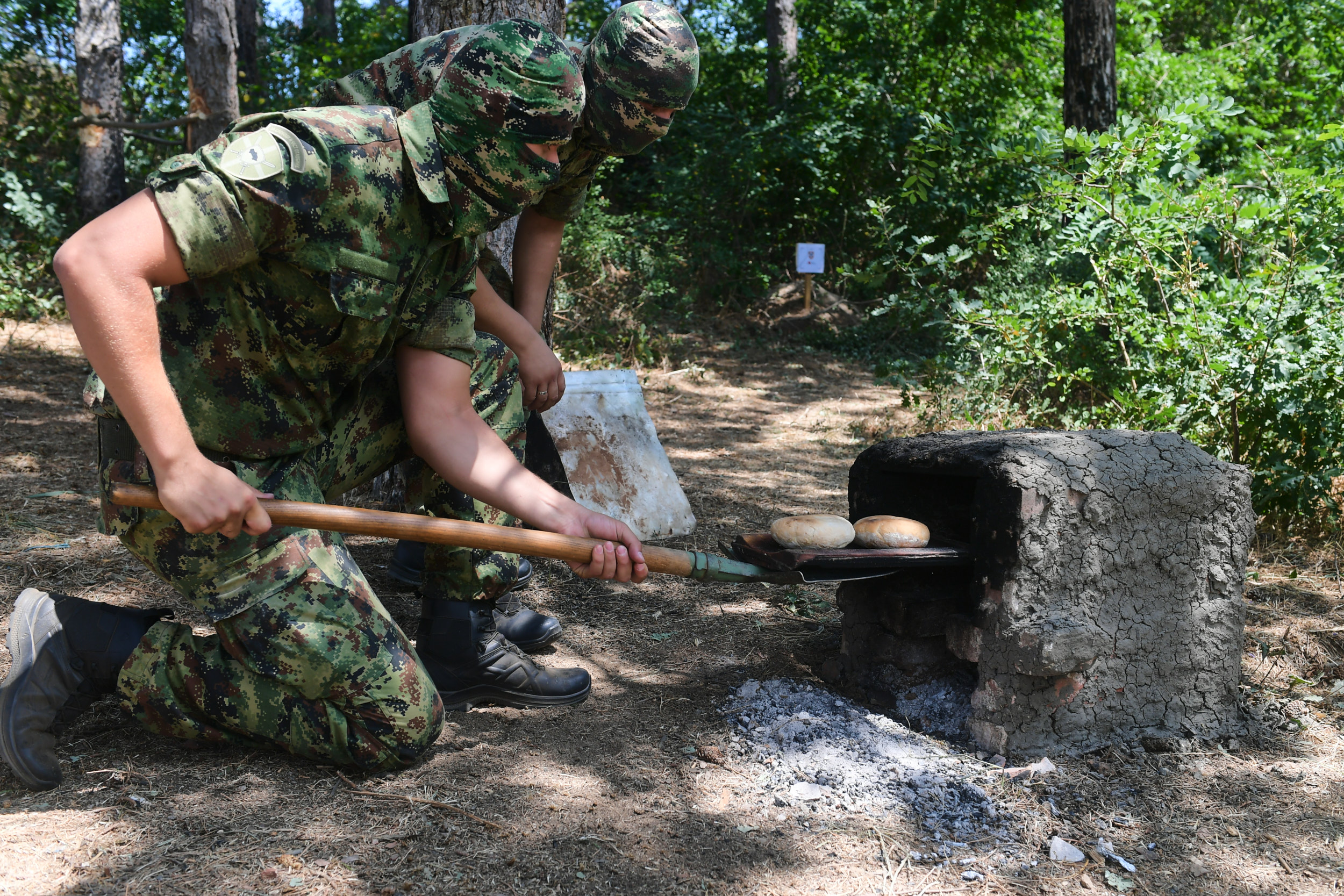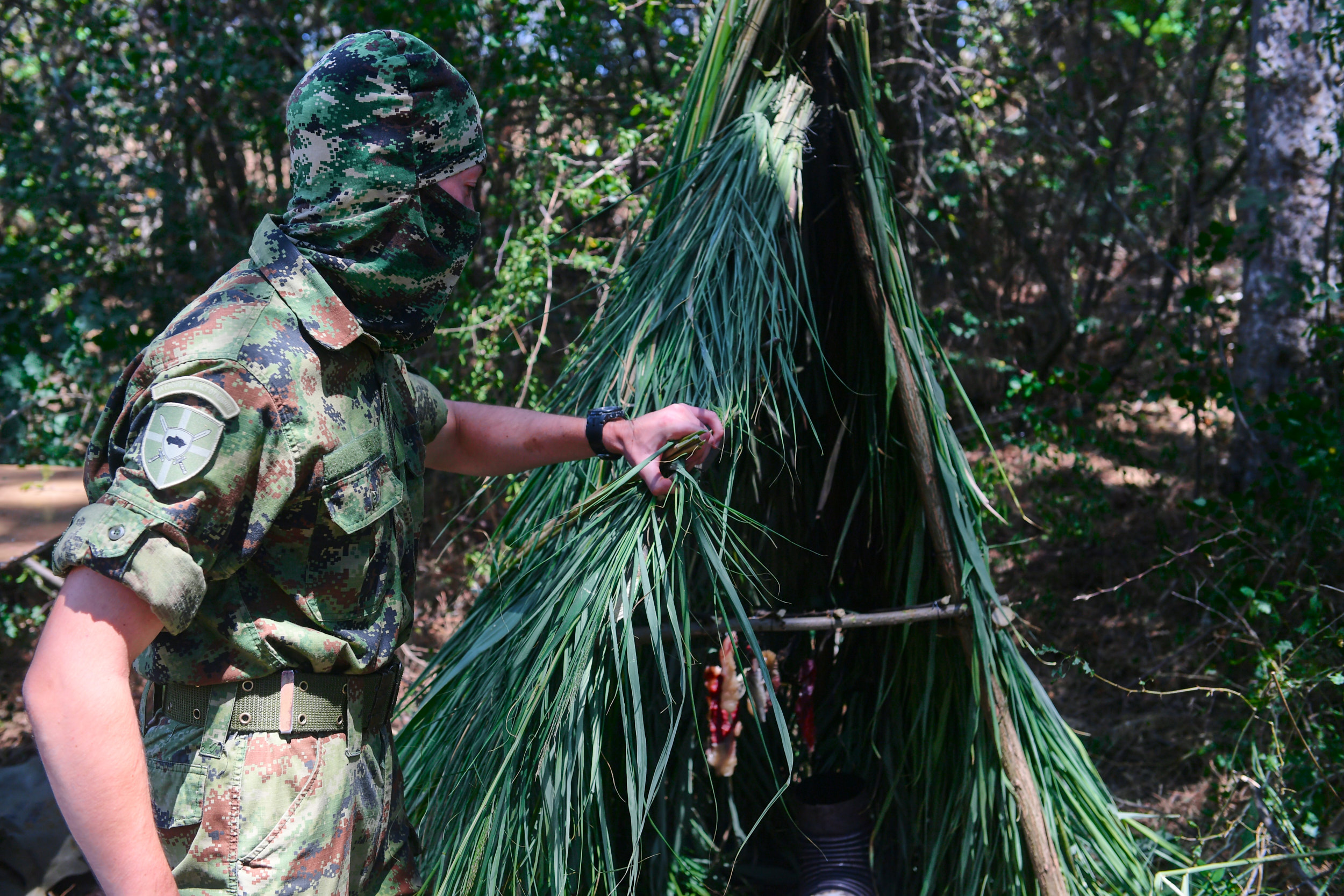18.07.2025.
Survival skills training
As part of their ongoing summer training, reconnaissance Army units are carrying out planned training activities focusing on survival skills and food procurement.
 The training aims to improve their survival skills in situations where there is no regular water and food supply and where logistics support is limited, simulating scenarios that members of these units may face while carrying out their assignments.
The training aims to improve their survival skills in situations where there is no regular water and food supply and where logistics support is limited, simulating scenarios that members of these units may face while carrying out their assignments.Complex tasks and conditions that reconnaissance units work under require a high level of resourcefulness and adaptability. Therefore, in addition to standard equipment, unit members are also trained in the use of natural resources — both to procure food and to build tools and structures that they can use while on a mission.
 Reconnaissance Company Commander, Captain 1st Class Saša Stefanović, says that the training objective is to teach unit members how to use plants and animals as essential food sources, but also how to build different tools and structures such as fire pits, food storages, cooking and drying ovens, and water collection and filtration systems.
Reconnaissance Company Commander, Captain 1st Class Saša Stefanović, says that the training objective is to teach unit members how to use plants and animals as essential food sources, but also how to build different tools and structures such as fire pits, food storages, cooking and drying ovens, and water collection and filtration systems.— Through survival food skills training, we teach soldiers how to properly and safely use the food that can be found in the wilderness, primarily wild plants and animals. Wild plants and animals are great allies of reconnaissance units during observation and intelligence gathering missions, as they can provide them with sustenance for long periods of time. The aim is to teach every soldier to catch fish, snakes and frogs, identify edible and medicinal plants, identify different types of mushrooms and learn how to cook them. As you can see here at the training area, we have appliances for the thermal processing of food and water filtration systems. It is very important that reconnaissance units remain hidden from enemy sight, that they can see without being seen. Provision of a sufficient amount of water and food has a significant influence on the execution of a task - explains Captain 1st Class Stefanović.
 A professional member of the reconnaissance unit who is currently in training, says that unit members do summer training every year, which is extremely important for being able to perform specific tasks.
A professional member of the reconnaissance unit who is currently in training, says that unit members do summer training every year, which is extremely important for being able to perform specific tasks.— Training is intensive, interesting and very useful, especially in situations where our skills can help us survive in difficult conditions. The most interesting part of the training for me is constructing a fishing system, and the most intense part of the summer training is overcoming water obstacles - says the reconnaissance soldier.
The summer training cycle will continue in July and August with a number of activities aimed at developing survival skills and combat readiness. Apart from getting food and cooking in the wilderness, the training also includes swimming, close combat, edged weapons training and several tactical exercises. An important segment is overcoming water obstacles, using both standard and makeshift vessels.
 The training of the Serbian Armed Forces reconnaissance units is a continuous process that takes place throughout the year on various types of terrain and in different weather conditions. The goal is for unit members to achieve a high level of skill necessary for successful execution of tasks in the most complex conditions, especially in the depth of enemy disposition, where autonomy, efficiency and a high level of adaptability are required.
The training of the Serbian Armed Forces reconnaissance units is a continuous process that takes place throughout the year on various types of terrain and in different weather conditions. The goal is for unit members to achieve a high level of skill necessary for successful execution of tasks in the most complex conditions, especially in the depth of enemy disposition, where autonomy, efficiency and a high level of adaptability are required.



